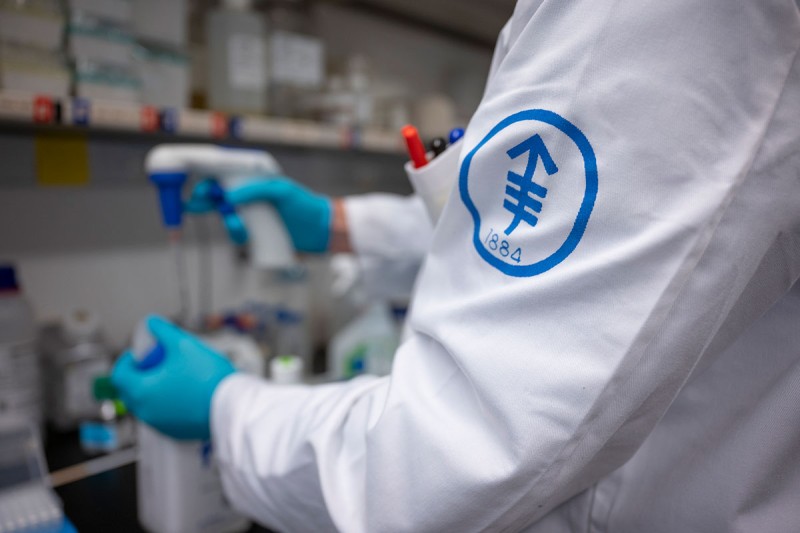
New research from Memorial Sloan Kettering Cancer Center (MSK) examines how diabetes may speed the growth of multiple myeloma; analyzes the increasing number of patients who are benefiting from precision oncology; and highlights the unexpected role of the integrated stress response in response to genomic instability in mitochondrial DNA.
Diabetes may speed multiple myeloma growth
Diabetes is known to increase risk for developing multiple myeloma, as well as being associated with worse survival in those diagnosed. But researchers did not know whether diabetes was directly causing or accelerating this blood cancer. Now a team led by multiple myeloma specialist Urvi Shah, MD, has found clues in mice of how diabetes might speed the growth of multiple myeloma. They also found a surprising difference in how diabetes affects survival of Black patients versus white patients.
When investigating what might drive multiple myeloma growth, Dr. Shah and colleagues observed that human tumors grew more rapidly in diabetic mice than in non-diabetic controls. The diabetic mice had an insulin-related signal that was overactivated — suggesting that higher insulin levels may accelerate cancer growth.
“I work with many multiple myeloma patients who also have diabetes,” Dr. Shah says. “This study suggests we may improve patient outcomes further by treating diabetes at the same time we treat multiple myeloma.”
The researchers also looked at racial disparities in survival rates among those living with both conditions. (Both diseases are also approximately twice as common in Black patients than in white patients.) They studied health records of more than 5,300 patients with multiple myeloma, of whom 15% had diabetes. To their surprise, diabetes was associated with worse survival outcomes among white patients but not Black patients.
“It’s possible that in Black people, having diabetes increases multiple myeloma risk in the same way it does in white patients, but for some reason it doesn’t affect survival in the same way,” she says. “But we need to do more research to see if there is truly a difference in biology or if the discrepancy is caused by other clinical factors such as the younger age of Black patients.” Read more in Blood Advances.
Why more patients benefit from genetic analysis of tumors
Between 2017 and 2022, the percentage of tumors with a genomic biomarker that makes them eligible for treatment with an FDA-approved drug increased significantly — from 9% to 32% — according to an MSK study.
This analysis sheds new light on the impact precision oncology has had in recent years. To help understand the phenomenon, researchers at MSK looked at the clinical actionability of mutations found in more than 47,000 solid tumors sequenced with MSK-IMPACT®. Analysis using OncoKB™, MSK’s precision oncology knowledge base, revealed the increase.
MSK molecular geneticist Debyani Chakravarty, PhD, led the study — a collaboration among 26 authors from across MSK. The researchers report that the increase in mutations found to be actionable was driven by the approval of new drugs, particularly the approval of the immunotherapy drug pembrolizumab for tumors with high tumor mutational burden (TMB-H), regardless of their location in the body. Several classes of precision oncology therapies have also been approved, which benefit patients with certain mutations. But the team notes that much more drug development is needed to benefit the roughly 2 out of 3 of patients who do not yet have an actionable mutation in their tumors. Read more in Cancer Discovery.
Mitochondrial DNA breaks can activate integrated stress response
The laboratory of molecular biologist Agnel Sfeir, PhD studies how the body repairs broken DNA, and how mismanagement of this process can lead to diseases like cancer. Mitochondrial DNA is genetic material located in the mitochondria, which are energy-producing organelles dispersed throughout the cell’s cytoplasm. Dr. Sfeir has called mitochondrial DNA “the forgotten genome” because it has been studied (and understood) much less than DNA found in the cell nucleus.
In new research, Dr. Sfeir’s lab at the Sloan Kettering Institute found that a subset of cells with mitochondrial DNA breaks activate the integrated stress response, a signaling pathway activated by cells to adapt and survive under adverse conditions. This is coupled to defects in mitochondrial morphology, loss of membrane potential, and defective protein import. The study reveals the sequence of events linking damaged mitochondrial genomes with the cytoplasm and highlights the unexpected role of the integrated stress response in reestablishing homeostasis in response to mitochondrial genome instability. Read more in Molecular Cell.